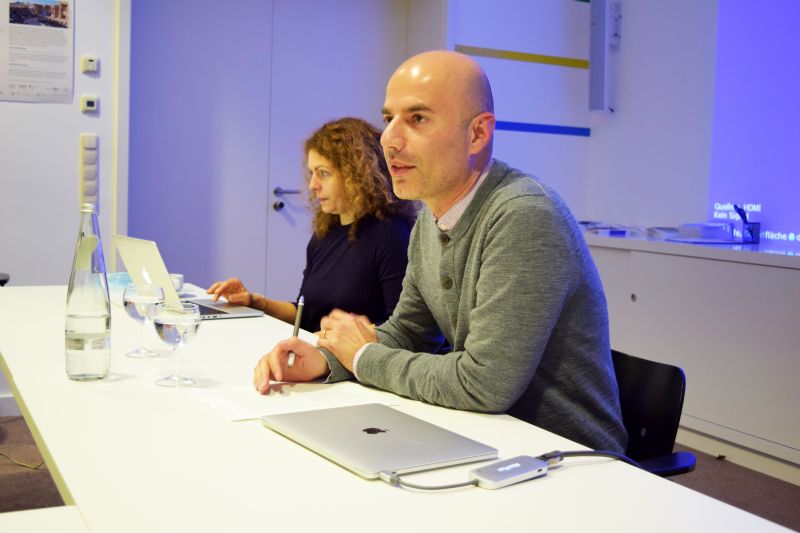Regarded as a pioneer of a specifically Arab-Iraqi sociological tradition, ‘Ali-al Wardi’s multi-volume work, Lamahat Ijtimaʿiyya min Tarikh al-ʿIraq al-Hadith (Sociological Glimpses from the Modern History of Iraq), combined Arab intellectual history, particularly the work of the classical philosopher Ibn Khaldun, with modern sociological theory to depict Iraq’s rapidly transforming 20th-century social landscape, particularly its rural inhabitants. Al-Wardi adapted aspects of Ibn Khaldun’s ideas to theorize the appearance of new peasant classes, attributing the modern predicament of Iraq’s peasants to their transitory position between a noble and simple Bedouin ideal and the socially and economically differentiated urban space.
Contriving an Iraqi Sociology: 'Ali al-Wardi and the Invention of the Peasant
Haytham Bahoora (University of Toronto / EUME Fellow 2017), Chair: Pascale Ghazaleh (AUC / EUME Fellow of the Alexander von Humboldt Stiftung 2017/18)
Forum Transregionale Studien, Wallotstr. 14, 14193 Berlin

This paper argues that al-Wardi’s theories emerge from a modern tradition of positivist sociological inquiry rooted in a tradition of colonial ethnography. Briefly tracing this tradition of colonial ethnography in Iraq, this paper then situates al-Wardi’s work within an emerging 20th century Iraqi sociological tradition. Al-Wardi’s theorizations of Bedouin and peasant cultures would lend itself to explanations of the irrevocable distance—psychological, cultural, and material—between the city and the country, a distance that was a barrier to the establishment of a unified national culture, and thus a distance that had to be bridged through government policy. In the context of an expanding central government authority, such a state of affairs had a particularly pernicious impact on the peasantry, who were being integrated into the governmentality of the colonial state.
Haytham Bahoora received his MA and PhD in Comparative Literature from New York University (2004, 2010). He has published articles and book chapters in the International Journal of Middle East Studies, the Journal of Middle East Women’s Studies, the Arab Studies Journal, and the Oxford Handbook of Arab Novelistic Traditions. His book, Aesthetics of Arab Modernity: Literature and Urbanism in Colonial Iraq (forthcoming, Cambridge University Press) links the production of aesthetic modernisms in Iraq in various artistic genres (narrative, poetry, painting, architecture) to a period of uneven social and economic development in early to mid-twentieth century urban Baghdad. From 2010-17, he was Assistant Professor of Arabic Literature at the University of Colorado, Boulder. He was previously a EUME Fellow (2009-10) and an Art Histories and Aesthetic Practices Fellow (2013-14) at the Forum Transregionale Studien. He will be joining the faculty of the Department of Near and Middle Eastern Civilizations and the Centre for Comparative Literature at the University of Toronto in January 2018. From October to December 2017, Bahoora will be an associated EUME Fellow.

